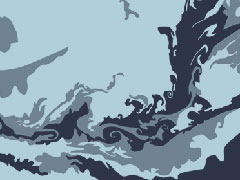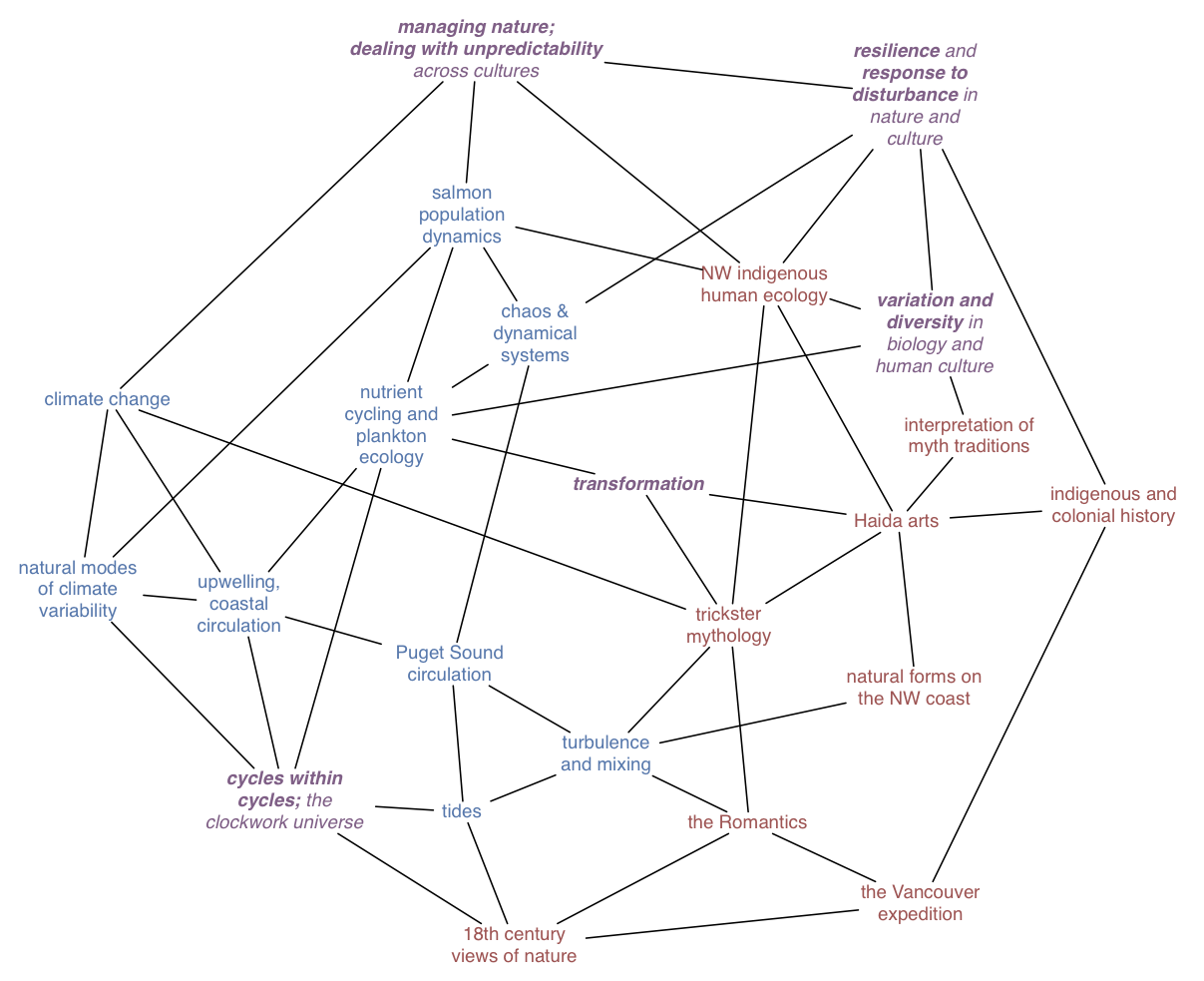Program on the Comparative History of Ideas (CHID), Oceanography, and Honors Program, 2004–2013
Course announcement: This course will follow Jonathan Raban’s remarkable travelogue Passage to Juneau on a tour through the human and natural history of the Pacific Northwest coastal waters. We’ll discuss chaos theory and the circulation of Puget Sound; coastal ecology and climate change; the art and mythology of the Northwest tribes and the problems of ethnography; the Vancouver expedition and the Romantic Sublime. The unifying theme is the interplay between order and chaos, and how we react (in science, in literary criticism, in political decision-making) when we reach the limits of our knowledge and control. How do we, and how did the indigenous cultures on this coast, deal with natural unpredictability and all the dangers that result–from navigating a turbulent channel to managing a salmon fishery?
Syllabus: I experimented with the form of this course over the years. Here’s the syllabus from 2009, when I taught it as a fairly standard (for the humanities) read-and-discuss course, albeit with some science labs too. Here’s the syllabus from 2013, when I tried a pretty radical experiment in decentralization.

